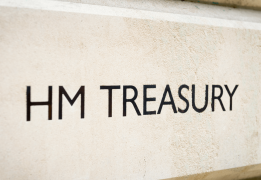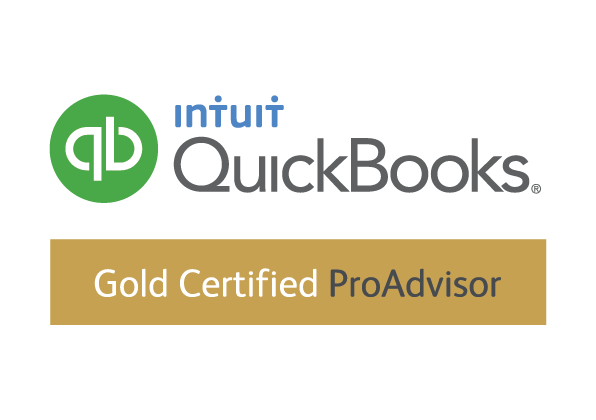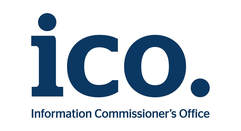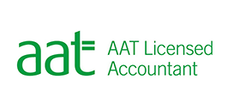|
Quick update on what the chancellor has announced today:
If you have any questions please don't hesitate to contact us on info@intact-accounting.co.uk
0 Comments
Subcontractors usually end up paying more tax than they need to as they are taxed at 20% on their total earnings before expenses are taken into account.
Intact Accounting helps many subcontractors claim all the expenses they are entitled to and get the excess tax paid repaid from HMRC as quickly as possible; specially during these uncertain times, we can help get the tax rebate that's due to you. Please contact us on info@intact-accounting.co.uk to see how we can help you. The government has announced a number of ways to support the public during these difficult times. Information on the support available has been summarised below:
We aim to provide the maximum support possible to all of our clients during these difficult times and hope you all remain safe. If you have any questions please don't hesitate to contact us on info@intact-accounting.co.uk The government has decided to postpone IR35 reforms into the private sector for another 12 months.
These reforms were meant to begin from April 2020, however due to the coronavirus the government has decided to delay these changes to April 2021. This is an unexpected turn of event; however, it is important to remember that this is a delay and not a cancellation. If you have any questions about this announcement and how it may affect you, please contact us on info@intact-accounting.co.uk. Partial Exemption
Directly attributable expenses to taxable supplies will be recoverable in full. Therefore, if input VAT has been incurred solely in relation to the making of taxable supply, all of this will be recoverable. If, however, input tax has been incurred solely in relation to the making of exempt supply then this is not recoverable (subject to de-minimis rules, covered later) There will also be input VAT leftover, residual input VAT, not directly attributable to either taxable or exempt supplies (VAT on accountancy fees, for example). As a partially exempt business, you will need to use one of the approved methods below to work out how much of your residual input VAT can be recovered. The Standard Method or Special Method The default, Standard Method, uses the split between taxable and exempt turnover in the business as the basis for calculation. For example, if a business had a turnover of £100,000 in a quarter, with £80,000 of this relating to taxable supply (vatable sales) and £20,000 relating to exempt supplies (non-vatable sales), then 80% of the residual input VAT would be recovered and the remaining 20% will not be recoverable. If you have rental income figures, you could calculate the percentage based on the revenue which may be advantageous to you, depending on the figures. However, if the Standard Method is deemed not to give a fair and reasonable result, then you could apply to HMRC to use a Special Method for calculation. Possible special methods include transaction based, staff apportionment or square foot, however HMRC may not accept these and any special method would need to be accepted by HMRC. The de-minimis limit When the input VAT attributable to exempt supply (both directly and through residual calculation) is below the de-minimis limit then all the input VAT incurred in that quarter is recoverable. The following 2 conditions should apply to be below the de-minimis limit:
Annual Adjustment Partially exempt businesses completing their VAT on a monthly or quarterly basis should do a partial exemption working for each period to ensure that they remain below the de-minimis limit in the period. If the de-minimis limit was breached in a month or a quarter and VAT was not recovered but overall the de-minimis limit for the period was not breached then this input VAT becomes recoverable now, however if the de-minimis limit is breached on the annual calculation then any input VAT attributable to exempt supplies recovered previously would become repayable to HMRC. If you have any questions about VAT please contact us on info@intact-accounting.co.uk. From April 2020 Medium and large private sector firms will have to check whether contractors need to pay income tax and national insurance contributions, shifting the responsibility to conduct such checks from the contractor to the organisations using their services.
Medium and large organisations are expected to determine IR35 status (i.e. whether the contractor is working as an employee and should pay income tax/NIC on their earnings, or if they are a true service provider) of the individual contractors working in their organisation. These changes are designed to ensure that contractors pay the same tax and National Insurance Contributions as an equivalent employee. These changes do not affect small companies. Where the end user is a small company the personal service company (PSC) will continue to be responsible for assessing whether IR35 applies. The companies act 2006 defines small company as meeting at least two of these qualifying requirements :
This reform will bring the private sector in line with the public sector, for whom the reform was implemented in 2017. Where IR35 applies, the fee payer rather than the individual contractor, will be responsible for withholding PAYE tax and NIC from the contractor’s fees and paying it over to HMRC. HMRC estimates 170,000 individuals working through their own limited company and 60,000 organisations that use these workers will be affected. To find out more about IR35 compliance checks click here. If you have any questions about how the new changes will effect you or to find out more please contact us on info@intact-accounting.co.uk. When someone dies without a valid will they are considered intestate and their estate must be shares according to the intestacy rules.
With two third of people not having a will in place this is unfortunately a common occurrence, which can cause headaches for those left behind when they come to deal with the estate. You should strongly consider making a will giving you a peace of mind that your loved ones will be taken care of after you are gone. The intestacy rules specify a rigid order of who should benefit from the estate. The highest existing and surviving relative will take priority.
If the estate is worth less than £250,000 then the whole amount is passed on the spouse or civil partner, however if the value of the estate exceeds £250,000 then the spouse keeps the £250,000 but is also entitled to half of the remaining estate and the rest is split equally between the children or grandchildren of the deceased if the children have already died. If there are no surviving decedents, the whole of the estate goes to the next highest relative in order of importance above and if the deceased has none of the surviving relatives listed above, then the estate will go to the crown, a situation known as ‘bono vacantia’. The order above also determines who will act as administrator for the estate, this person will be responsible to take care of the inheritance tax and sharing the estate. Another reason why you should ensure to have a will in place is because there are also some exclusions as to who can benefit from the estate where there is no valid will in place, such as;
None of the above will be able to benefit from the estate under the intestacy rules and where there is no will in place. If you require further information about Intestacy Rules and Inheritance Tax, please contact us on info@intact-accounting.co.uk. A List of the most common Limited Company Expenses:
These are some of the expenses that are allowable for a limited company, if you have any questions or require more information please contact us on info@intact-accounting.co.uk. If you are selected for an HMRC IR35 compliance check both wording of your contract and the way you carry out your work and the duties under your contract will be examined to determine your employment status for tax purpose so its important that as well as your contract the actual service provide by your company and the relationship it has with its end clients is not one of an employee and employer.
HMRC would look at the nature of your relationship with your clients such as;
For more information or a contract review please contact us on info@intact-accounting.co.uk. Tier 1 Entrepreneur Visa allows for an individual who has access to £200,000 in investment funds to set up or take over and run a business in the UK.
The funds have to be either your own or made available by other people such as partner or investor. You need to meet the English language requirement. You need to set up a genuine and viable business and be able to provide for yourself and your family through your own business and not take a job with another business. You can initially stay in the UK for a maximum of 3 years and 4 months and apply for an extension for another two years. You may be able to apply for a settlement once you have been in the UK for 5 years. You could also apply for a fast tracked settlement if your business meets certain requirements;
You need to make sure that your accountant is qualified and familiar with the process. The Home Office has a list of accounting qualifications from whom they will accept accounts for Tier 1 (Entrepreneur) including the Association of Accounting Technicians AAT, which is the body that is regulating Intact Accounting. Intact Accounting can also recommend capable solicitors to assist you with your visa application (please note Intact Accounting does not receive any commission or payments for these recommendations and would only recommend a business to try and help our customers and will not accept any liabilities as a result). If you require further information about Tier 1 Visa, please contact us on info@intact-accounting.co.uk. Chancellor Philip Hammond is being urged to remove complexities surrounding Inheritance tax when he delivers his Budget speech on Monday 29 October 2018.
Under current exemptions which have mostly remained unchanged since their introduction in 1986, individuals can give away up to £3,000 worth of gifts each tax year by using their annual exemption, this can be carried over for one tax year only. Parents can gift up to £5,000 towards their children wedding ceremony and up to £2,500 for grandchildren and more generally gift up to £1,000 to any other individual. The Office for Tax Simplification (OTS) is due to make its recommendations, this could include a larger annual exemption to replace all above gift exemptions. For more information and if you have any questions regarding Inheritance tax (IHT) please contact us on info@intact-accounting.co.uk. In 2014 almost all governments worldwide agreed to exchange financial information, known as the Common Reporting Standards (CRS) which is now in full flow and allowing HMRC to receive unprecedented amount of information on offshore assets and income of UK residents.
HMRC are now therefore advertising the Worldwide Disclosure Facility (WDF) as a last chance for those with UK tax issues to come forward voluntarily before HMRC starts to use CRS data and find and penalise those that have not disclosed. Current penalties under WDF which are based on the behaviour that lead to the non-disclosure are:
These penalties can go up to 200% depending on the overseas territory where the income or gain arose. Taxpayers need to notify HMRC by 30 September 2018 of their intention to disclose any non-reported offshore income and gains. The tax payer then has 90 days to provide HMRC with the full disclosure. Failure to notify HMRC by 30 September 2018 and disclose will result in a failure to correct (FTC) penalty of 200% of the unpaid tax, this penalty can be reduced to 100% by full co-operation of the taxpayer. Taxpayers with undisclosed offshore income or gain that gives rise to a tax liability of £25,000 or more could face an immediate fine and/or a prison sentence of up to 51 weeks. If you require further information about offshore earning and necessary disclosures please contact us on info@intact-accounting.co.uk. The rules regarding Non Domiciled individuals have been subject to many changes over the last few years and the position is frequently misunderstood by advisers and taxpayers alike.
The following considers only the Capital Gains Tax consequences, but you should also be aware of the impact of domicile on other taxes such as Income Tax and Inheritance Tax. From 2017/18 tax year onwards any individual resident in the UK for 15 or more of the previous 20 tax years will be deemed UK domiciled for tax purposes. Any individual with a UK domicile of origin who has acquired a non-UK domicile of choice but later decides to return to the UK will be treated as UK domiciled for any year that they are UK resident. Individuals who are UK resident and UK domiciled are liable for CGT on their worldwide capital gains. Individuals who are UK resident but not UK domiciled remain liable for CGT on capital gains arising from the disposal of UK assets but may opt to only be liable for CGT on “foreign” capital gains if and when they remit their disposal proceeds back into the UK, this is known as “remittance basis”. Any adult’s, resident in the UK for seven years or more of the last nine tax years who opt to use the remittance basis must pay the annual charge known as “remittance basis charge” which is £30,000 in 2017/18, this charge will increase to £60,000 for adult’s resident in the UK for 12 or more years in the last 14 tax years, however if the overseas unremitted income and gains is less than £2,000 then remittance charge won’t apply. All UK residents that are claiming the remittance basis will lose their personal allowance and CGT annual exemptions if they have overseas income or gains over £2,000. This is a complex area subject to many changes over the years. If you have any questions regarding capital gains or any other aspect of UK tax please contact us on info@intact-accounting.co.uk. With the recent surge (and fall) in the value of crypto currencies, it is important to bear in mind HMRC view these currencies as assets and individual investors may have to pay capital gains tax on any gains made from their activates. At certain levels Income tax and Class 4 National Insurance may be payable instead.
To begin with the price paid for these currencies and any other expenses incurred to acquire them must be recorded accurately to calculate future gains correctly. Tax on gains over the annual tax-free allowance of £11,300 (for individuals) for tax year 2017/18 is charged at 10% or 20% depending on the individual’s circumstances. Gains must be reported via the self-assessment system on tax returns by 31 January following the end of the tax year in which the disposal occurs to avoid any penalties from HMRC. If up to four times the rate of the annual tax-free allowance of £11,300 of i.e. £45,200 of crypto assets are sold even if the net gains are not more than the annual tax-free allowance, then the sale must be reported to HMRC. Married individuals could gift some of their assets to their spouses prior to disposal to utilize their tax-free allowance resulting in a combined tax-free gain of £22,600 per tax year. If the frequency of and time spent buying and selling crypto currencies is sufficient then HMRC may consider it a trade and then rather than the profits being chargeable to capital gains tax they will be chargeable to income tax at 20%, 40% or 45% and National Insurance at 9% and 2%. This would result in a higher tax charge and so care must be taken to get your disclosure to HMRC correct. For further information please contact us on info@intact-accounting.co.uk. From 1 April 2017 you could be classified as "limited cost trader" if your Business spends less than 2% of its VAT inclusive turnover or is more than 2% but less than £1,000 a year on goods. You would have to use flat rate of 16.5% instead of the rate used currently.
Capital goods, services ,food and drink and costs relating to cars (except transportation businesses) do not count as goods for this purpose and wont be included. Examples Before FRS changes Sales £1,000 plus VAT at 20% = £1,200 Amount due to HMRC (14.5% rate) = £174 VAT retained £200 - £174 = £26 After FRS changes Sales £1,000 plus VAT at 20% = £1,200 Amount due to HMRC (16.5% rate) = £198 VAT retained £200 - £198 = £2 Leaving the business just £2 to offset against VAT paid on all expenses. For some businesses it might be better to change to normal basis of accounting for VAT or for smaller business with turnovers below the VAT de-registration threshold, it may be appropriate to de register altogether. For further information please contact us on info@intact-accounting.co.uk. Rental income form personally held buy to let is taxed at the owner’s tax rate (up to 45%).
On acquisition, landlord pays Stamp Duty Land Tax (SDLT) which from April 2016 a 3% charge above the current rates apply. On disposal from 5 April 2015 whether the landlord is UK resident or not disposal of interest in UK residential property is subject to Capital Gains Tax (CGT). If you decide to incorporate then you would trigger a capital disposal and CGT will be payable at either 18% or 28% or a combination of the two depending on your level of income. With Inheritance Tax (IHT) BPR is not likely to apply in respect of buy to let as its considered an investment, beneficiaries would receive the property at market value and with immediate sale no CGT will be payable. For further information please contact us on info@intact-accounting.co.uk. The Rangers football club tax case which has been known as the Big Tax case has been going on for a few years now.
The liquidators are taking the case above Edinburgh's Court of Session and to the Supreme Court on the 15 March 2017. In summary The First Tier Tribunal (FTT) and The Upper Tier Tribunal (UTT) concluded that the loans were a genuine legal event and the employee’s did not have a legal right to the monies. However, HMRC decided to appeal to the Court of Session and, to the surprise of many, HMRC won this round to continue this saga. You can read more about this case here, or for further information please contact us on info@intact-accounting.co.uk. If you buy a property to make improvements and sell for a profit then you’re a trader, however if you buy a property and rent it out and wait till the value increases over the years then you’re an investor.
It’s important to distinguish between the two, as if you are a trader your gains on the improvements to the property well be taxed as income tax and not as capital gain unless you can prove that you intended to rent the property out. Also when you own a property personally, your rental profits are taxed at your personal tax rate and when you sell the rental property then you pay capital gains tax (CGT) at either 18% or 28% or a combination of the two again depending on your level of income. However, if you own a properties via a company then your company’s profits and capital gains are taxed at 20% assuming the profits are less than £300,000 a year. Another benefit of accruing properties into a limited company is the finance cost restriction announced by the chancellor in the summer budges 2015, where individual landlords won’t be able to claim the cost of their mortgages on their rental properties, although a 20% basic rate tax relief will be introduced, limited companies are exempt from this and can still claim 100% of their finance costs. Rental profits in the company can either be taken out as dividends or left in the company to invest in the next property, For further information please contact us on info@intact-accounting.co.uk. We have mentioned claiming cost of replacing domestic goods previously here however this is changing from April 2016. The former wear and tear allowance is now replaced with relief for replacement of domestic goods, the new allowance however isn’t as generous as the 10% wear and tear allowance where landlords could claim 10% of the net rent received as expenses even if the expenditure was not incurred, though the downside to the wear and tear allowance was when the actual cost of replacing items was more than the 10% allowance full relief was not obtained.
Replacement of domestic items relief is available from April 2016 and it’s available on meeting the conditions below:
Changes to Income Tax Personal allowance is now set at £11,000. The basic rate threshold is now set at £32,000 which means earnings in excess of the personal allowance up to this threshold are taxed at 20%. Earnings between £32,001 and £150,000 are taxed at 40% and Income over £150,000 would fall into the additional tax rate which is taxed at 45%. Personal allowance will be reduce on income over £100.000 at rate of £1 for every £2 on income, which means at £120,000 personal allowance is wiped out. The £20,000 earned over £100,000 is effectively taxed at 60%. Dividends The new dividends regime is now in place. Under the new regime the first £5,000 is tax free, after that the basic rate tax is set at 7.5%. Dividends at higher rate are taxed at 32.5% and 38.1% at additional rate tax. Capital Gains Tax (CGT) Capital gains tax was reduced from 18% to 10% at the basic rate, from 28% to 20% above basic rate of earning, although this reduction does not apply to residential property which will continue to be taxed at the previous higher rates. VAT VAT compulsory registration threshold is set at £83,000 in any 12 months period. If you receive goods worth more than £83,000 from the EU in the UK then you must register for VAT. You must register within 30 days of your business turnover exceeding the threshold however you may wish to register voluntarily if your turnover is below the threshold of £83,000 or if its advantageous to your business, perhaps you sell mostly to UK vat registered businesses? For further information please contact us on info@intact-accounting.co.uk. |
Categories
All
Recent Posts
|
Privacy Policy
The information contained in this website is intended for reference, education and informational purposes only. The contents are based on, or derived from, information generally believed to be reliable, although Intact Accounting Limited accepts no liability with the user’s reliance on it.
The Information contained in or provided from or through this website does not constitute financial advice, investment advice, trading advice or any other advice. You should undertake independent due diligence and consultation with a professional financial advisor relating to these matters. You understand that using any or all of the information contained in this website is at your own risk.
The information contained in this website is intended for reference, education and informational purposes only. The contents are based on, or derived from, information generally believed to be reliable, although Intact Accounting Limited accepts no liability with the user’s reliance on it.
The Information contained in or provided from or through this website does not constitute financial advice, investment advice, trading advice or any other advice. You should undertake independent due diligence and consultation with a professional financial advisor relating to these matters. You understand that using any or all of the information contained in this website is at your own risk.
For more information contact us today on info@intact-accounting.co.uk to arrange a free no obligation initial consultation with one of our qualified consultants.
Intact Accounting Limited, 8c Canons Corner, Edgware, London, HA8 8AE.
Intact Accounting Limited, 8c Canons Corner, Edgware, London, HA8 8AE.
COPYRIGHT © 2014 - 2021
INTACT ACCOUNTING LTD
ALL RIGHTS RESERVED
INTACT ACCOUNTING LTD
ALL RIGHTS RESERVED








